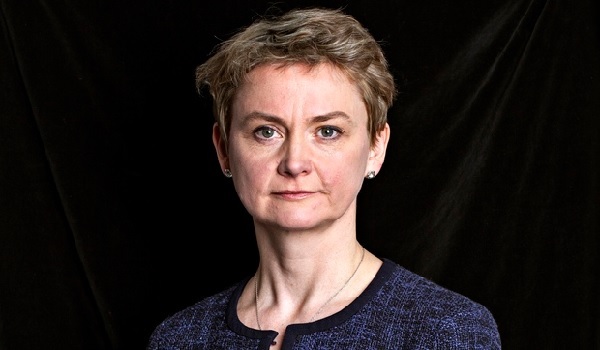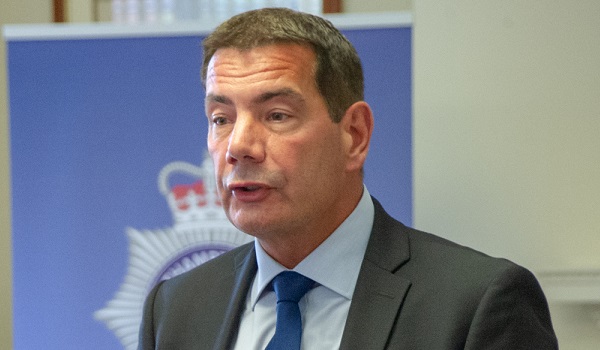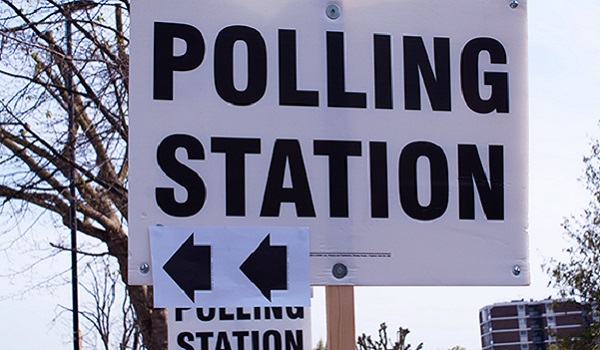Home Office ‘can not stand back as forces struggle’
A hard-hitting report from the Home Affairs Select Committee (HASC) warns the Government that without additional funding for policing in the Autumn Budget next week there will be “dire consequences” for public safety and criminal justice.
The committee’s Policing for the Future inquiry found that forces are struggling to cope in the face of changing and rising crimes, as a result of falling staff numbers, outdated technology, capabilities, structures, fragmentation and a failure of Home Office leadership.
It recommends major changes to the police response to new and growing crimes and warns that the Home Office cannot continue to stand back while police forces struggle.
The inquiry was particularly critical of the “shockingly” low level of charges brought in child abuse image cases and number of fraud cases being investigated.
And it claimed there is a “systemic problem” with outdated police technology that means officers have a lack of digital capability.
HASC chair Yvette Cooper said: “Police officers across the country are performing a remarkable public service in increasingly difficult circumstances, but forces are badly overstretched. Crime is up, charges and arrests are down, and the police service is struggling to respond effectively to emerging and growing challenges, such as online fraud and online child abuse.
“Policing urgently needs more money. The Government must make sure policing is a priority in the Budget and Spending Review, or public safety and communities will pay the price.
“The Home Office has shown an irresponsible failure of leadership in the face of changing patterns of crime. Ministers and Home Office officials must not continue to stand back, as the police cannot do this alone. When the new challenges to public safety require major police technology upgrades, new action with the internet companies or new partnerships with the NHS, then it is the Home Office who should be pulling that together”.
The report, published on Thursday (October 25), details the consequences of cuts to funding since 2010, including neighbourhood policing, which has reduced by more than 20 per cent with some forces losing more than two thirds of their neighbourhood officers.
It also warned that, as recorded crime has risen by 32 per cent in the past three years, charges and summons being brought have reduced by 26 per cent.
And it said only a “tiny proportion” of online fraud cases are ever investigated and the police response needs a fundamental overhaul.
Other major findings include:
- The police response to online child sexual abuse is nowhere near the scale needed, and forces are woefully under-resourced for investigations;
- In many areas, the police force is being used as the sole emergency service for mental health crises; and
- Investment in and adoption of new technology “is an utter mess”.
“Policing is suffering from a complete failure of leadership from the Home Office, especially on responding to new and changing crimes,” the cross-party committee report added.
Conservative committee member Tim Loughton warned of a failure to tackle a proliferation of online child sexual abuse (CSA).
“We found that the police are bringing a shockingly-low number of charges for the possession of child abuse images, even though they are recording tens of thousands of offences.
“Whatever the cause, it is unacceptable that children are being put at risk by the collective failure to get a grip on this problem. Our report calls for a comprehensive strategy to address CSA online, led by the Home Office, including action to improve police capabilities in this area.”
On the state of neighbourhood policing, Stephen Doughty MP, a Labour member of the committee, said: “Neighbourhood policing lies at the heart of British policing and it has reached an unacceptable state. Once those crucial local relationships are lost, it is very difficult to rebuild them, and they are vital to so many areas of policing, from counter-terrorism to serious organised crime.
“We are calling on the Government to report back to us within one month of the Comprehensive Spending Review, to explain what actions it has taken to maintain core neighbourhood policing functions in all forces, and to prevent officers from being diverted to other policing requirements.”
But as there is just one arrest for every ten recorded incidents of online CSA, the committee recommended the Government appoint a Commissioner for the Prevention of Child Sexual Abuse, to work across departments and agencies and “produce a bold and comprehensive cross-government strategy”.
It also called for the private sector to contribute to funding online law enforcement and regulation of the internet companies should include new requirements on tackling online child sexual abuse.
The HASC also criticised the use of the police to deal with people in mental health crisis. It said they are being used as a gateway to healthcare for those in desperate need of help, which is completely inappropriate for patients and is overstretching the police.
The committee called on the Government to use the recently-announced NHS funding uplift to support mental health work and urged forces to provide more training in mental health for officers.
Technology
The committee warned that police officers are struggling to do their jobs with out of date technology. It said a lack of digital capability is now a systemic problem. But it said this was not due to funding but was “a complete lack of coordination and leadership on upgrading technology over many years”.
The MPs called on the Home Office to show national leadership on technology, making it a clear and stated aim to unify all police databases and communications systems, according to a clear timetable.
“It must develop plans for a National Digital Exploitation Centre for serious crime, similar to the model for counter terrorism policing,” it added.
Role of the Home Office
The HASC was particularly damning about the “complete failure of leadership from the Home Office”.
It said: “As the lead department for policing, it can not continue to stand back while crime patterns change so fast that the police struggle to respond. Many of the actions needed to respond to changing crimes cannot be done by forces alone. The Department needs to drive reform in key areas, such as data-sharing between public services, the negotiation of national technology contracts, building partnerships with the NHS or other government departments, and the regulation of internet companies.”
The committee recommended the Home Office launches a transparent, root-and-branch review of policing, publishing proposals by the end of February.
It said the review should focus on the allocation of responsibilities and capabilities at a local, regional and national level, a recommendation that supports Lynne Owens, the National Crime Agency’s director-general’s call for a shake up of police funding to match the capability and capacity required at each level, when she recently spoke to Police Professional.
Chief constables are already reviewing specialist and local capabilities and Ms Owens is leading a review of serious organised crime capabilities.
The HASC said, while neighbourhood policing must be the bedrock of local policing, at a national and regional level, forces need to pool resources and capabilities to a far greater extent, particularly for online crimes, but also in complex areas where crimes often cross force borders, such as organised crime, County Lines and modern slavery.
Its report called for the establishment of a National Policing Council, chaired by the Home Secretary and comprising representatives of the Association of Police and Crime Commissioners (APCC), National Police Chiefs’ Council (NPCC), officer/staff associations, College of Policing and Her Majesty’s Inspectorate of Constabulary and Fire and Rescue Services, and a National Police Assembly comprising all police and crime commissioners and chief constables.
Funding
The committee said that given the complex challenges outlined in its report, failure to provide a funding uplift for policing would have dire consequences.
“Without extra funding, something will have to give, and the police will not be able to fulfil their duties in delivering public safety, criminal justice, community cohesion and public confidence,” it said.
“The current model for police funding is not fit for purpose, and should be fundamentally revised and restructured.”
As the Treasury has not increased the central government police grant in 2018/19 financial year, instead allowing forces to raise a greater proportion of income from the council tax precept, the HASC warned that the continued heavy reliance on local taxpayers for additional funding is unsustainable.
And with the much delayed reform of the formula used to determine how central government police funding is allocated, the committee said it is time to “stop kicking this problem into the long grass, and create a funding settlement for forces that is fit for the 21st century, recognising the true cost of policing”.
It added that the Government should move to a longer-term funding structure, to enable the service to frontload investment in the technology that will enable it to make the best use of its resources and assets.
Response to the report
NPCC chair, Chief Constable Sara Thornton, said the HASC report rightly recognises that forces and officers have come under ‘serious strain’.
“It demonstrates that the threats and challenges we face require a response across the whole system and can not be developed by institutions acting alone. We want to see more involvement and leadership from ministers and officials in the development of strategy and transformation in partnership with chief constables and police and crime commissioners.
“The Home Office alone can not determine which capabilities should be delivered nationally or regionally, nor should they be left with the responsibility of joining up police technology. However, there is a need for the Home Office to lead in developing the broad framework, showing leadership when change is stalling, and ensuring that funding is sufficient overall and targeted where there is greatest need.”
APCC chair Mark Burns-Williamson said: “Police and crime commissioners (PCCs) have been clear that policing is under huge pressure, that demand on the service is increasing as is the complexity of the cases that forces are having to deal with.
“Our police officers and staff do a fantastic job keeping our communities safe, often going above and beyond, so we need to ensure that the service is funded appropriately going forward. PCCs are working closely with chief constables and partners locally, the NPCC and the Home Office nationally to review our demand and resources in preparing a comprehensive submission in the run up to the next Government spending review.
“We will examine the recommendations in the report in detail over the coming days some of which I’m sure will resonate.”
Mr Burns-Williamson also added: “In addition, this week we have expressed our considerable concern directly to the Chancellor about the huge impact of changes to the employer pension contributions for policing, costing £165m nationally. If this issue is not addressed for 2019/20, the additional monies raised by PCCs through the £12 extra on the police council tax will be all but wiped out to pay for this. We need a quick resolution as we know the public want to see more investment and support for policing services.”
The president of the Police Superintendents’ Association Gavin Thomas said: “This is an important report by cross-party members of the Home Affairs Committee.
“I am grateful for the level of detail and enquiry they have undertaken to support their conclusions, which have vindicated what I and my Association have been highlighting for a number of years.
“We have heard many euphemisms to describe the current state of policing, from ‘stretched’ and ‘challenged’ to ‘degraded’ or ‘difficult’.
“Last year I said that policing was facing a perfect storm and this year I said I believe it is now in a state of crisis. This report has highlighted that there is a need now for political leadership to take some tough decisions with the service. This needs gripping.
“It also needs what I have repeatedly called for: a review on what we want from our service in the 21st century, and how we configure, structure and resource it to meet the needs of our communities.
“We need an honest debate with the public, politicians and opinion informers, and to acknowledge where reform has not worked, and to say so and change it.
“My Association supports localism and the bedrock that is neighbourhood policing. But localism will not address the significant challenges this service is facing, which do not respect boundaries and lines.
“Recent experience and evidence suggests that the reliance on collaborations between forces is a flawed idea. My Association will continue to call for this whole review of the current 43 force structure and the need for mergers.
“This report has further highlighted that no-one has a strategic overview of policing in this country, of the interdependencies and the unintended consequences recent reforms of policing have brought.
“It is my view, and one supported by this report, that Government has a significant role.”
The Police Federation of England and Wales (PFEW) said the HASC report also supports what it has been saying for some time.
PFEW vice-chair and welfare lead Ché Donald said: “This report wastes no time in getting straight to the heart of the matter and blames government for the perilous position that policing now finds itself in. It warns that the Home Office cannot continue to stand back while police forces struggle.
“The HASC has recognised that not only will there be dire consequences for public safety and criminal justice without significant additional investment in the police service, but it has also recognised our position on the importance of officer welfare,” Mr Donald said.
“As the report rightly recognises, there is no substitute for embedding officers and police community support officers in neighbourhood teams. Not only does it forge stronger links with communities, it also helps provide vital intelligence, which we can use to prevent crime from happening in the first place. This is invaluable in the fight against terrorism.”
But one of the most significant areas for improvement were the alarming gaps in provision that left the police service being used to pick up the pieces and deal with mental health crises, he said.
“As the report recognises, and our own welfare work identifies, an absolute key priority is to improve partnership working with other public services and agencies by pooling resources and setting out clear roles, responsibilities and where possible, relevant protocols,” Mr Donald added.
“We have always said that a police cell is not the appropriate place to detain someone suffering from a mental health crisis. But NHS cuts and shortfalls in other areas like social services and the national shortage of mental health beds mean that in too many areas the police are being used as the sole emergency service.
“This cannot be allowed to continue and chiefs must prioritise mental health training for their staff and officers as well as taking steps to safeguard and assess the mental health and welfare of their own employees.”
Mr Donald welcomed the report’s hard line on police funding as it accuses the Government of “abdicating responsibility” and “kicking this problem into the long grass”.
He said: “It is absolutely right for them to push the Government to prioritise it both in the upcoming Budget and the next Comprehensive Spending Review.
“We have long been saying that there needs to be an honest debate on what type of police service the public want and need, and what can be provided with the money on offer.
“If Government don’t listen now, they can’t say they haven’t been warned. They need to recognise the true cost of policing – or else the police will not be able to fulfil their duties and keep the public safe.”







